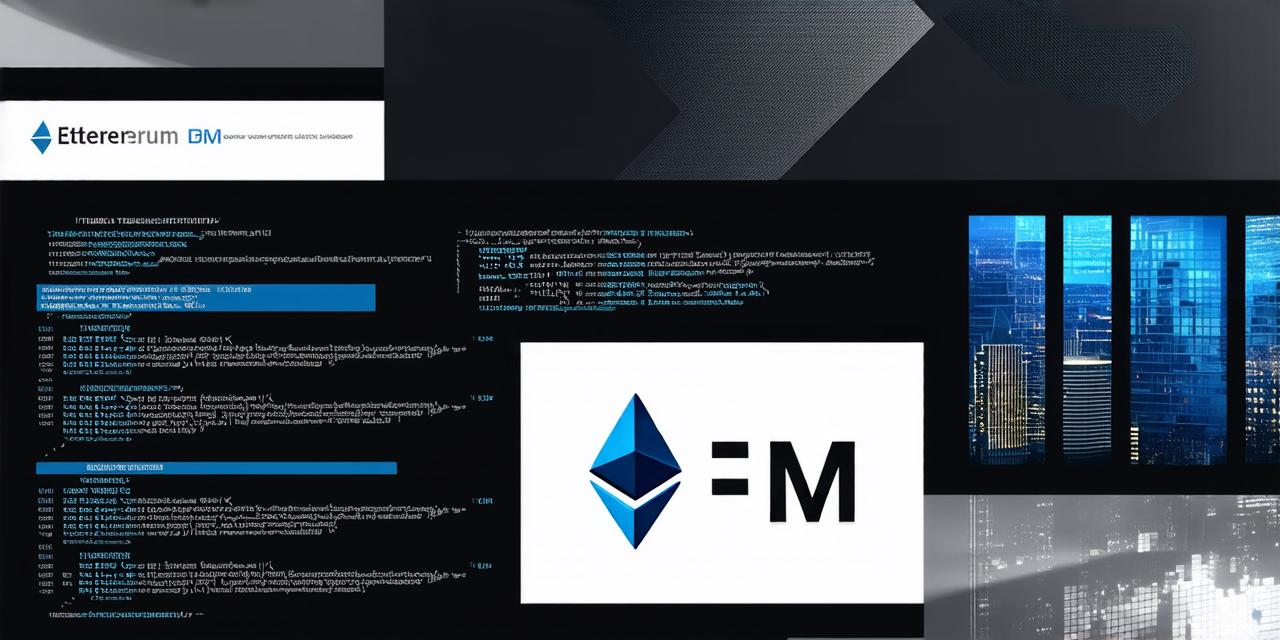Introduction:
EVM stands for Ethereum Virtual Machine. It is a platform that enables developers to create smart contracts on the Ethereum blockchain.
Smart contracts are self-executing programs that can be programmed to facilitate, verify or enforce the negotiation of a contract between two parties without intermediaries. They are written in Solidity, a programming language that runs on EVM. Smart contracts enable developers to create decentralized applications (DApps) that can interact with the Ethereum blockchain.
EVM and Decentralized Applications:
Decentralized applications are applications that run on a decentralized network rather than a centralized server. They are powered by smart contracts and can be accessed from anywhere in the world without relying on intermediaries such as banks or government agencies. DApps built on EVM can be used for a variety of purposes such as trading cryptocurrencies, lending and borrowing, and gaming.
EVM and Cryptocurrency Transactions:
EVM enables developers to create smart contracts that can facilitate cryptocurrency transactions on the Ethereum blockchain. Smart contracts can be programmed to automatically execute trades based on predefined conditions such as price, volume, and time of expiration. They can also be used to manage cryptocurrency exchanges and other financial applications.
EVM and Blockchain Security:
EVM provides a secure platform for running smart contracts on the Ethereum blockchain. Smart contracts are self-executing programs that run in isolation from other applications, making them difficult to hack. EVM also uses advanced cryptographic techniques such as hashing and digital signatures to ensure the integrity of data stored on the blockchain.
EVM and Gas Fees:
Gas fees are the costs associated with executing smart contracts on the Ethereum blockchain. They are paid in Ether, the native cryptocurrency of the Ethereum network. The gas fee is determined by the complexity of the smart contract and the amount of data it contains. The more complex the contract, the higher the gas fee will be.
FAQs:
1. What is EVM?
EVM stands for Ethereum Virtual Machine. It is a platform that enables developers to create smart contracts on the Ethereum blockchain.
2. What are smart contracts?
Smart contracts are self-executing programs that can be programmed to facilitate, verify or enforce the negotiation of a contract between two parties without intermediaries.
3. How does EVM enable decentralized applications (DApps)?
EVM enables developers to create DApps that can interact with the Ethereum blockchain. These DApps can be used for a variety of purposes such as buying and selling goods, exchanging tokens, and voting.
4. What is the role of EVM in cryptocurrency transactions?
EVM enables developers to create smart contracts that can facilitate cryptocurrency transactions on the Ethereum blockchain.
5. How does EVM ensure the security of data stored on the blockchain?
EVM uses advanced cryptographic techniques such as hashing and digital signatures to ensure the integrity of data stored on the blockchain.
6. What are gas fees?
Gas fees are the costs associated with executing smart contracts on the Ethereum blockchain. They are paid in Ether, the native cryptocurrency of the Ethereum network.
Conclusion:
EVM plays a crucial role in cryptocurrency development and has the potential to revolutionize the way transactions are conducted on the blockchain. With its ability to facilitate secure and transparent smart contracts, EVM is paving the way for decentralized applications that can be used for a variety of purposes such as buying and selling goods, exchanging tokens, and voting. As more developers adopt EVM and smart contracts, we can expect to see a shift towards a more decentralized and secure financial system.

